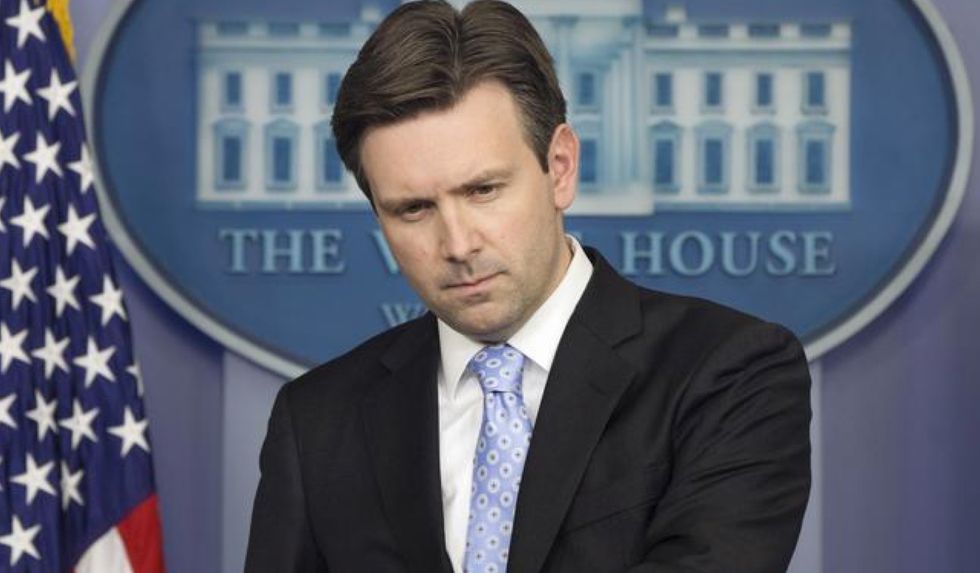
White House press secretary Josh Earnest listens to a question during his daily news briefing at the White House in Washington, Tuesday, Feb. 24, 2015, where he answered questions on immigration, Iran and Ukraine. (AP Photo/Jacquelyn Martin)

Though President Barack Obama expressed deep remorse Thursday morning that a counterterrorism strike on an Al Qaeda compound killed an American and Italian hostage, he does not have such regret about the two American members of Al Qaeda that were killed in January strikes.
Adam Gadahn, a California native who served as an Al Qaeda translator and spokesman, was killed in a U.S. counterterrorism operation in January. In a separate operation, Al Qaeda leader Ahmed Farouq, an American, was also killed.
 AP Photo/Jacquelyn Martin
AP Photo/Jacquelyn Martin
The White House neither Gadahn nor Farouq were specifically targeted. A reporter on Thursday asked White House press secretary Josh Earnest if the president regretted killing the two American militants.
“No. Those two individuals that you mentioned were leaders in Al Qaeda,” Earnest said. “They had prominent positions. Mr. Farouq for example was a leader of AQIS, Al Qaeda in the Indian Subcontinent, and he was playing a prominent role in leading that network’s operations and planning in that region of the world. We know Mr. Gadan had styled himself as a spokesperson for Al Qaeda. It is for that and other reasons that he was indicted by the U.S. government for treason.”
The American hostage Dr. Warren Weinstein and Italian hostage Giovanni Lo Porto, were humanitarian workers captured in Pakistan in 2011 and 2012, respectively.
Another reporter asked Earnest if the federal government ever considered a prisoner swap to get Weinstein back, similar to trading five Taliban detainees last year for the release of former Army Sgt. Bowe Bergdahl.
Earnest essentially separated dealing with Al Qaeda from dealing with the Taliban.
“The U.S. government went to great lengths to try to rescue Dr. Weinstein,” Earnest said. “There were significant resources dedicated to try to determine his whereabouts. We’ve been very clear about the policy of the United States, as painful as it is. It is a policy that prevents the United States from ever negotiating with terrorists. That policy was in place in the course of trying to secure the rescue of Dr. Weinstein. Again, this is a policy, particularly to the Weinstein family that is a very difficult one. But the analysis is a reasonable one. To engage in the practice of negotiating with terrorist groups to try to secure the release of innocent Americans would only put at risk more innocent Americans.”